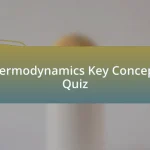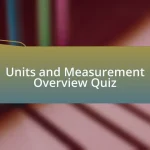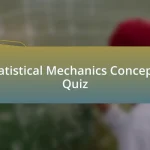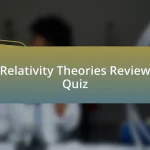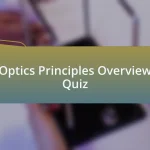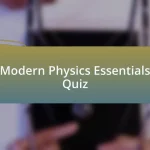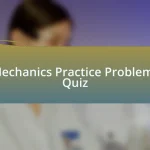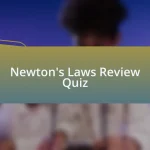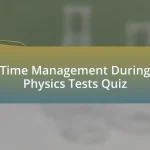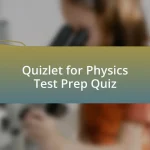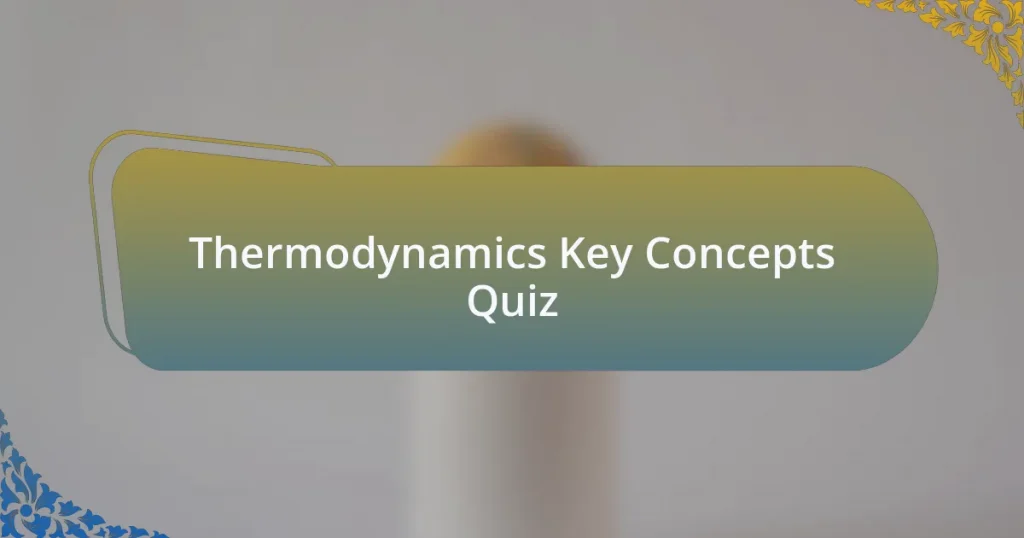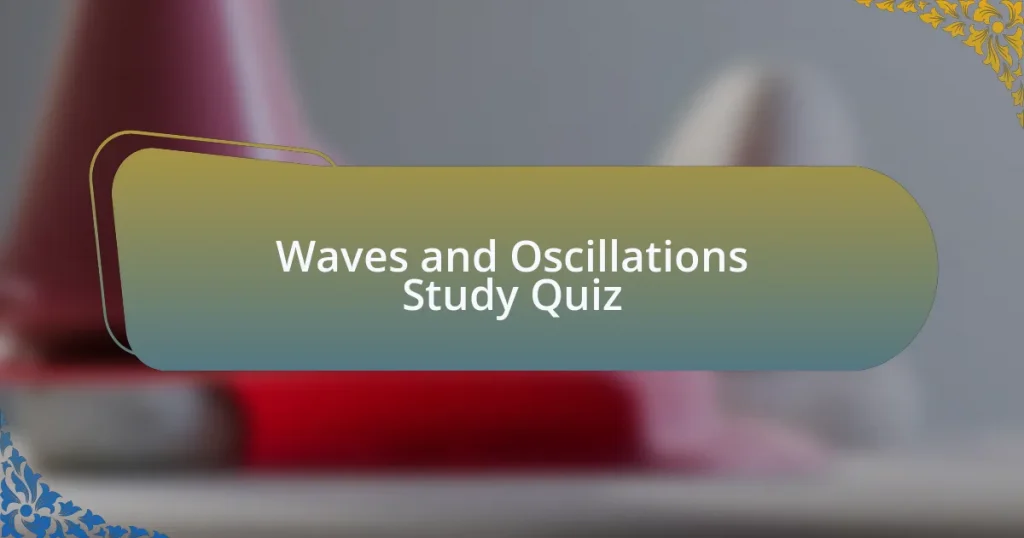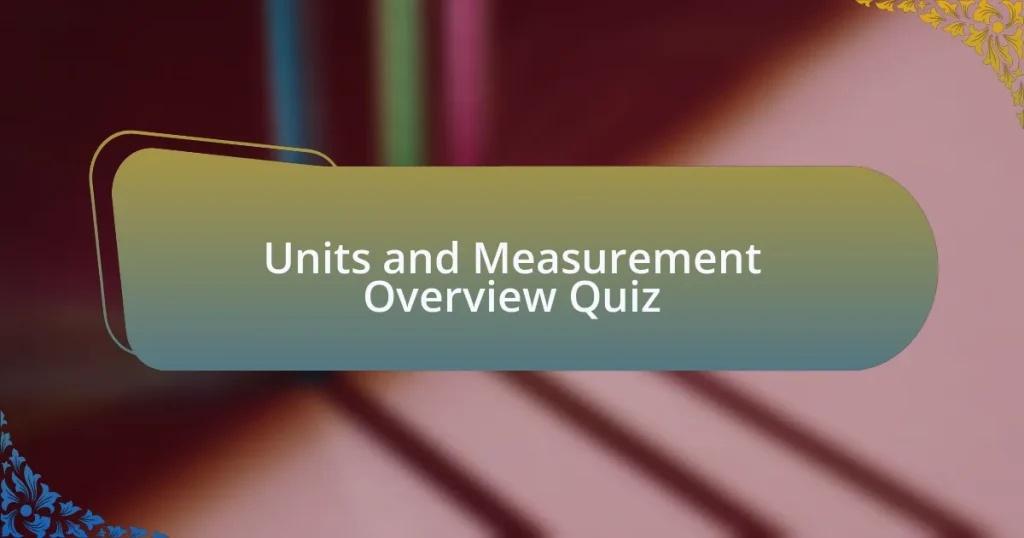Start of Physics Challenges and Games Quiz
1. A circuit with more than one path is like a multi-lane highway—what do we call it?
- Parallel
- Open
- Series
- Short
2. A magnifying glass is like a mini superhero for details—what type of lens gives it that power?
- Flat
- Concave
- Convex
- Cylindrical
3. A thermometer is the gadget that tells you if it`s a hot mess or cool breeze—what does it measure?
- Temperature
- Humidity
- Wind speed
- Pressure
4. Ever wonder how fast our star’s rays travel? About how long does it take sunlight to reach Earth?
- 10 minutes
- 12 minutes
- 5 minutes
- 8 minutes
5. Which prestigious prize did Albert Einstein snag for his physics breakthroughs in 1921?
- Nobel
- Pulitzer
- Zero
- Einstein
6. Albert, famous for his mind-blowing theory of relativity, goes by which last name?
- Newton
- Einstein
- Curie
- Galileo
7. An ion is like a charged-up celebrity—what does it always have?
- Volume
- Mass
- Energy
- Charge
8. When an object being painted gets an opposite charge to the paint, what magic happens?
- A messy finish
- A rough surface
- A color splash
- An even coat
9. Electric current is like a parade of tiny movers—what exactly is it a flow of?
- Resistance
- Power
- Voltage
- Charge
10. Which clever instrument would you use to check how many electric partygoers are moving in a circuit?
- Multimeter
- Ammeter
- Voltmeter
- Ohmmeter
11. Roughly what shape do most planets take – as if sculpted by an intergalactic artist?
- Cubes
- Spheres
- Pyramids
- Cylinders
12. The most recognized model of how the universe burst onto the scene is known as what – think of it as the ultimate “big boom” moment?
- Universal blast
- Big bang
- Cosmic explosion
- Stellar eruption
13. The movement of particles from an area of high concentration to low – kind of like fans leaving a sold-out concert – is what?
- Osmosis
- Diffusion
- Convection
- Filtration
14. The ‘ohm’ is the SI unit of what, for those who like to measure resistance with style?
- Electrical voltage
- Electrical flow
- Electrical resistance
- Electrical capacitance
15. The Pa, or Pascal, is a unit of what? (No, it’s not named after a delicious pastry!)
- Pressure
- Energy
- Force
- Volume
16. The scientist who gave us the “3 laws” – and an apple or two – was Isaac… who?
- Tesla
- Curie
- Galileo
- Newton
17. The state-of-the-art tech used to train pilots, so realistic you might forget it’s not the real skies, is a flight… what?
- Machine
- Trainer
- Simulator
- Apparatus
18. What kind of resistance do conductors have – think of it as the chill friend who barely ever argues?
- Medium
- High
- Variable
- Low
19. What type of radiation lets your cell phone chat with base stations, throwing its own microwave party?
- Infrared
- Radio waves
- Microwaves
- Ultraviolet
20. When two particles with the same vibe meet, what’s their reaction?
- Neutralize
- Repel
- Combine
- Attract
21. Uranium isn’t just heavy metal—it fuels which powerhouse of energy?
- Geothermal
- Wind
- Solar
- Nuclear
22. In metal’s exclusive party, who are the cool movers and shakers?
- Ions
- Electrons
- Neutrons
- Protons
23. What do you call the two superstar ends of a magnet’s red carpet debut?
- North and south
- East and west
- Top and bottom
- Front and back
24. If electrons were auditioning for a role, what charge would they claim?
- Positive
- Zero
- Neutral
- Negative
25. When you meet a neutron, what kind of charge handshake do you get?
- Positive
- Complex
- nan
- Negative
26. What handy gadget do we flip to summon light like a wizard’s spell?
- Switch
- Lever
- Dial
- Button
27. What magical trick does a prism perform on light—think of it as a cosmic DJ remix?
- Refracts It
- Scatters It
- Absorbs It
- Reflects It
28. When you see “kWh” on your bill, what high-energy phrase is that shorthand for?
- Kilo hydrogen
- Kinetic watts
- Kilowatt hours
- Kelvin watts
29. Nanotechnology: What does this teeny-tiny field obsess over?
- Very small things
- Average-sized objects
- Big machines
- Large organisms
30. When a piece of plastic gets a bit of a negative makeover, what does it secretly acquire?
- Gains electrons
- Gains neutrons
- Loses electrons
- Loses protons
Congratulations! You’ve Completed the Physics Challenges and Games Quiz
Thank you for participating in our quiz on Physics Challenges and Games! We hope you found the questions engaging and thought-provoking. This quiz was designed not only to test your knowledge but also to enhance your understanding of key physics concepts through enjoyable challenges. You may have discovered new strategies for problem-solving or reinforced existing knowledge about the laws of physics.
Throughout this quiz, you likely learned about the practical applications of physics in gaming and various challenges. From understanding force and motion to the principles of energy and momentum, each question was aimed at deepening your comprehension. This interactive format allows you to see how physics can be both fun and educational, providing insights that can boost your performance in future test preparation.
Don’t stop here! We invite you to explore the next section on this page, focused on Physics Challenges and Games. This resource will broaden your knowledge and provide you with additional strategies to tackle physics problems effectively. Dive deeper into the world of physics, and prepare yourself for even greater challenges ahead!
Physics Challenges and Games
Overview of Physics Challenges and Games
Physics challenges and games are interactive tools designed to enhance understanding of physical concepts. They often involve problem-solving tasks that require applying principles of physics in creative ways. These challenges can range from quizzes to complex simulations. Participants engage with scenarios that mimic real-world physics phenomena, making learning more engaging and effective.
Importance of Physics Challenges in Test Preparation
Physics challenges are crucial for test preparation as they reinforce theoretical knowledge through practical application. They help students develop critical thinking and analytical skills. By facing diverse problems, students can identify weaknesses and strengthen their understanding. This active learning approach increases retention of material and promotes deeper comprehension.
Types of Physics Games Used for Learning
There are several types of physics games utilized for educational purposes. Educational simulations allow students to experiment with different variables in a controlled environment. Competitive quizzes can stimulate motivation and enhance learning through gamification. Puzzle-based games challenge players to use physics concepts creatively, solidifying their grasp on complex topics.
Online Platforms for Physics Challenges and Games
Various online platforms host physics challenges and games tailored for learners. Websites like PhET Interactive Simulations offer interactive tools that visualize physics concepts. Other platforms, such as Brilliant.org, provide structured courses with engaging physics problems. These resources make it accessible for students to practice and assess their understanding of physics outside the classroom.
Creating Your Own Physics Challenges for Test Prep
Creating personal physics challenges involves identifying key concepts that need reinforcement. Start by selecting specific topics, such as mechanics or electromagnetism, and develop problems that require application of these concepts. Incorporate real-life scenarios to make challenges relatable and engaging. Test yourself with variations in difficulty to enhance both understanding and confidence before exams.
What are Physics Challenges and Games?
Physics challenges and games are educational tools designed to enhance understanding of physics concepts through interactive problem-solving activities. They engage students by presenting realistic scenarios or puzzles that require application of physics principles, such as mechanics, thermodynamics, and electricity. These challenges are often used in classrooms or test preparation settings to facilitate active learning and reinforce theoretical knowledge.
How do Physics Challenges assist in test preparation?
Physics challenges assist in test preparation by providing practical applications of theoretical concepts. They reinforce learning by allowing students to practice problem-solving under simulated examination conditions. Incorporating real-world examples helps retain information better. Studies show that active engagement in learning, like solving physics puzzles, significantly improves retention and comprehension—key elements for successful test outcomes.
Where can students find Physics Challenges and Games for preparation?
Students can find physics challenges and games on various educational websites such as Khan Academy, Physics Classroom, and myriad online test prep platforms. Many universities also offer resources through their physics departments. Additionally, there are mobile apps specifically geared towards physics problem-solving that provide interactive exercises and quizzes.
When should students engage with Physics Challenges for effective preparation?
Students should engage with physics challenges during their study schedule, ideally starting a few months before their exams. Regular practice increases familiarity with the exam format and improves time management. Integrating challenges after completing related coursework ensures that students reinforce recent concepts, which has been shown to improve overall test readiness.
Who benefits from utilizing Physics Challenges and Games?
Students of all levels benefit from utilizing physics challenges and games, particularly high school and college students preparing for standardized tests or physics courses. Instructors also gain from these tools, as they enhance their teaching methods by providing diverse activities to assess understanding. Evidence indicates that students who consistently engage with these challenges show higher proficiency in physics.
